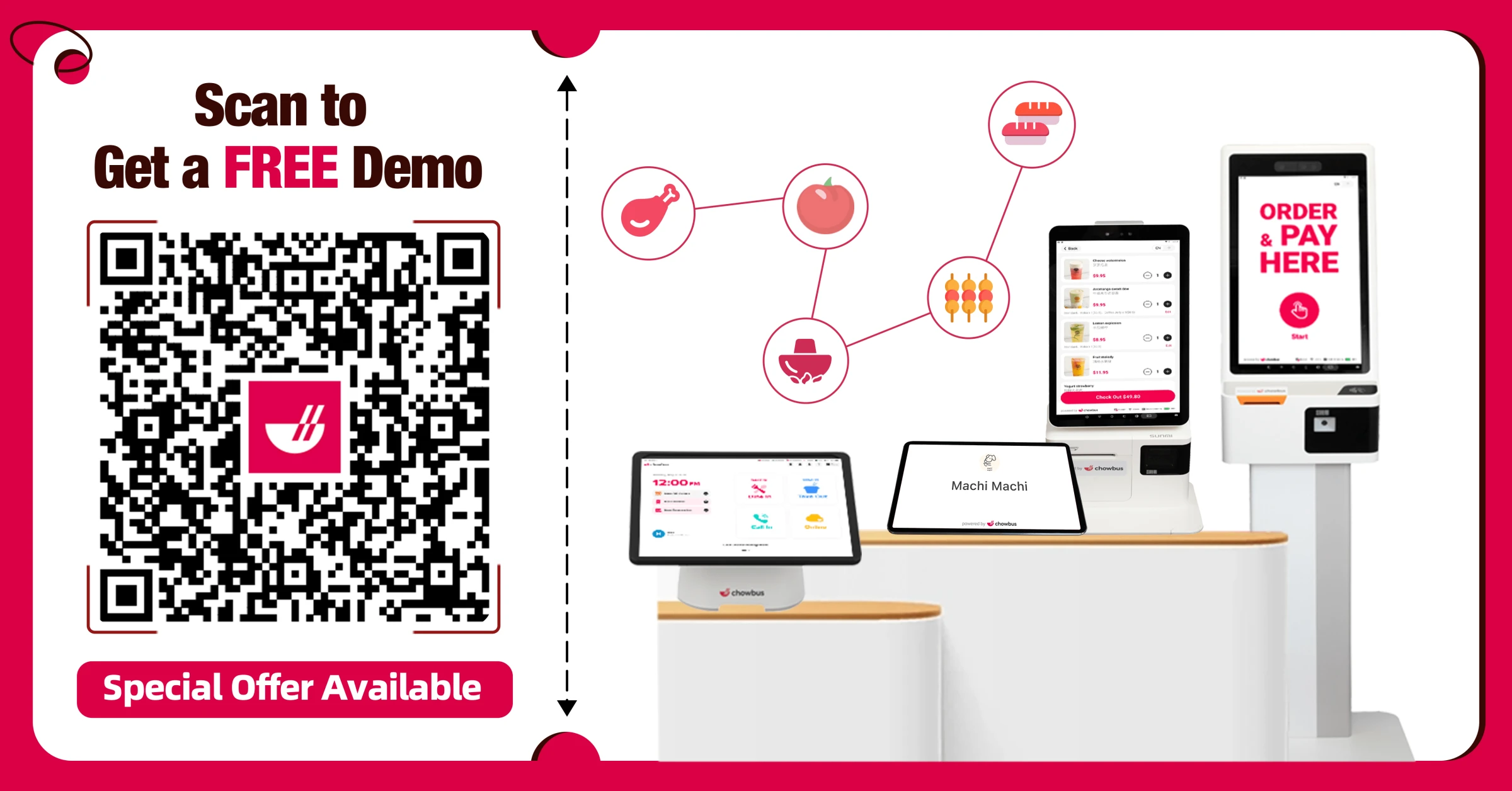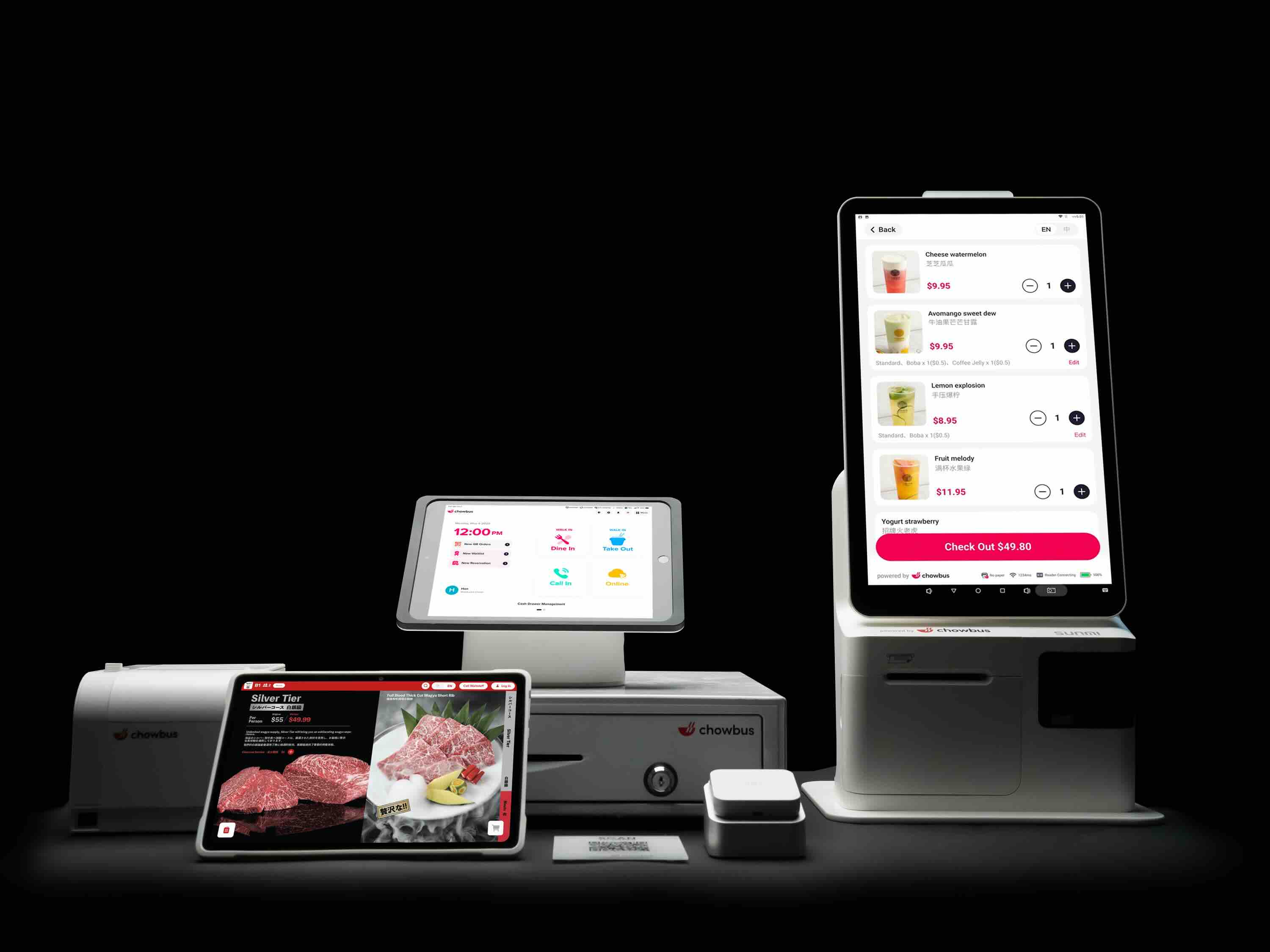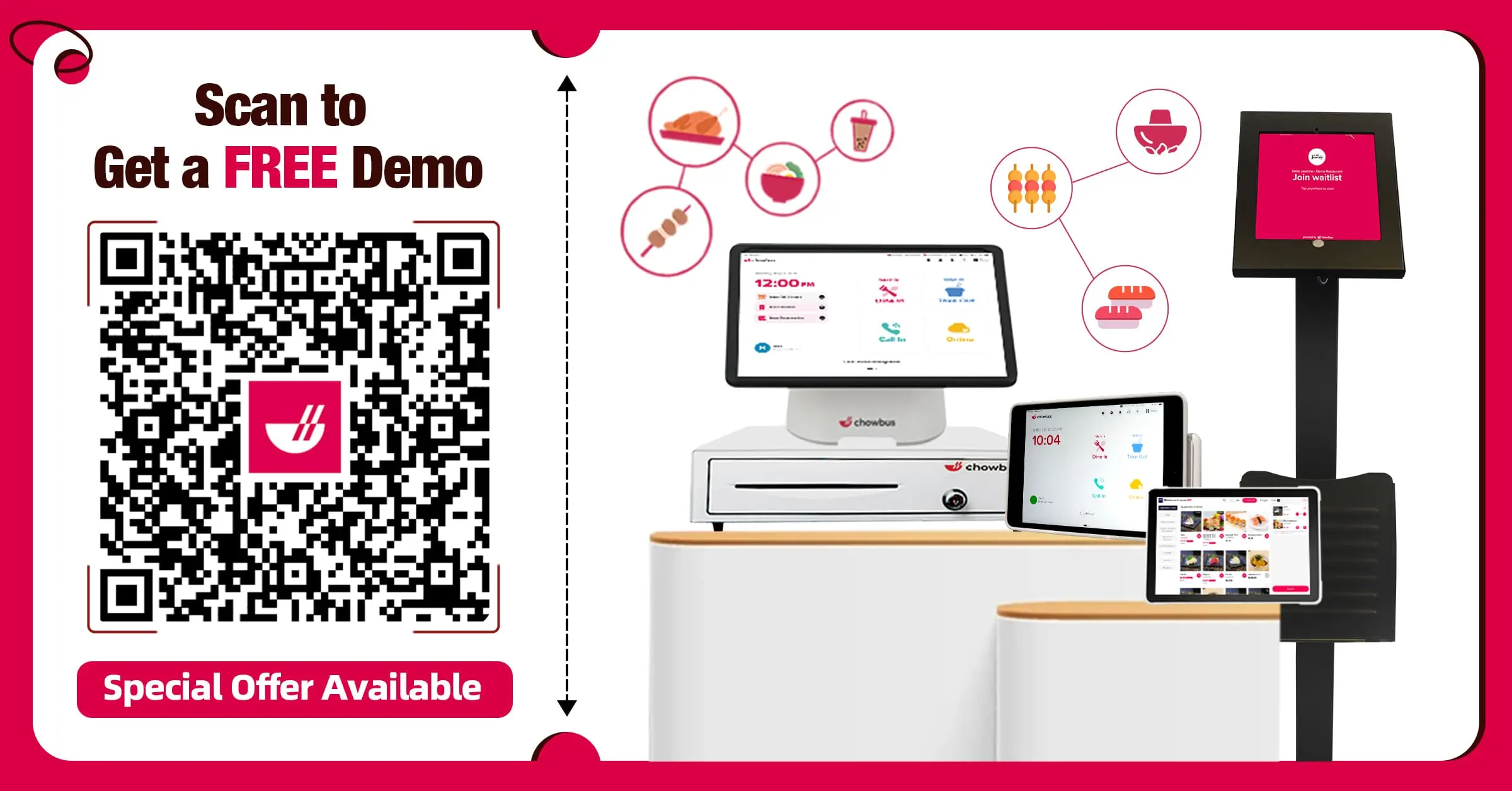AI in Restaurants: Leveraging AI for Restaurant Success

AI in restaurants is transforming the hospitality industry by introducing innovative solutions that revolutionize the way you run your establishment. Whether you’re a seasoned restaurant owner or just starting in the business, the integration of artificial intelligence (AI) and robots in restaurants can significantly impact your operations.
In this blog, we will explore the various facets of AI for restaurants, from its definition to practical applications, benefits, and its future in the industry.

What is AI for Restaurants?
AI for restaurants refers to the application of Artificial Intelligence (AI) technologies in the restaurant industry. These advanced technologies encompass a wide range of applications, including:
Machine Learning (ML): This involves algorithms and models that enable systems to automatically learn and improve from experience. In restaurants, ML can be used for demand forecasting, inventory management, and personalizing customer experiences.
Robotics: The use of automated machines or robots in restaurants can streamline operations. This includes food preparation, cooking, serving, and even cleaning, leading to increased efficiency and consistency.
Data Analytics: This technology processes large volumes of data to extract actionable insights. Restaurants use data analytics for optimizing menus, pricing strategies, and understanding customer preferences and behavior patterns.
Natural Language Processing (NLP): NLP enables machines to understand and interpret human language. In the restaurant context, this can power chatbots for customer service, voice-activated ordering systems, and sentiment analysis from customer feedback.
Computer Vision: This refers to the capability of computers to process and interpret visual information from digital images, which is useful in various restaurant applications such as quality control and monitoring in the restaurant setting.
Each of these technologies offers unique benefits and, when combined, can significantly transform how restaurants operate, leading to improved efficiency, customer experience, and profitability.
Ways to Use AI in Your Restaurant
AI technology can significantly enhance both front-of-house (FoH) and back-of-house (BoH) operations in a restaurant. Here’s how AI can be utilized in these areas:
Use of AI in Restaurant Front of House
The front of the house is the first point of contact between your restaurant and your customers. Implementing AI in this area can significantly streamline operations, improve customer experience, and increase efficiency. Here are some ways AI can be integrated into your restaurant’s front-of-house operations:
1. AI Chatbots
AI chatbots are the perfect digital companions for your restaurant. These virtual assistants can handle customer inquiries, reservations, and even take orders online. By automating these tasks, you can free up your staff's time to focus on providing personalized service to diners. AI chatbots can also provide instant responses to common questions, ensuring customers receive the information they need promptly.
2. Facial Recognition
Facial recognition technology offers a personalized dining experience. By recognizing returning customers, this technology can assist in offering tailored menu recommendations or recalling past orders, creating a more intimate and customized dining experience. It also enhances security and speeds up payment processes, ensuring a smoother and more secure transaction for your patrons.
3. AI Phone Answering
AI in phone operations streamlines communication. An AI-powered system can manage phone orders, handle reservation requests, and provide information about menu or opening hours, all without human intervention. This improves efficiency and ensures that customer calls are never missed, enhancing overall customer satisfaction.
4. Voice Ordering
Voice assistants like Siri, Google Assistant, and Amazon's Alexa have become increasingly popular among consumers. Integrating voice ordering capabilities into your restaurant's online ordering system can provide a convenient and futuristic experience for your customers. They can simply place an order by speaking to their device, making it more accessible for those on the go.
5. Self-Service Ordering
AI-powered self-service kiosks and mobile apps empower customers to place and customize their orders at their convenience. These systems can recommend menu items based on customer preferences, upsell items, and provide a seamless, contactless ordering experience. Self-service ordering not only increases order accuracy but also reduces wait times during peak hours.
6. Service Robots in Restaurants
Service robots are another innovative application of AI in the restaurant industry. These robots can assist with serving food, cleaning tables, and even delivering orders to customers’ tables. Integrating them into your restaurant’s operations can increase efficiency and create a unique and memorable dining experience.
Use of AI in the Back of House
Your restaurant’s back-of-house operations can experience a significant transformation by integrating AI-driven solutions. Here’s how:
1. Inventory Management
Managing inventory efficiently can be daunting, but AI can simplify it for you. AI-powered systems can monitor your stock levels in real-time, automatically reorder items when they run low, and predict future inventory needs based on historical data. This reduces waste, minimizes overstocking, and ensures you never run out of essential ingredients.
2. Labor Scheduling
AI algorithms can optimize staff scheduling by analyzing past sales data, predicting busy periods, and ensuring that you have the right number of staff at the right times. This leads to a more efficient use of labor, reducing overstaffing or understaffing issues and ensuring a smoother operation during peak hours.
3. Food Safety
AI can monitor and manage food safety protocols. By tracking temperature and storage conditions, AI systems can ensure compliance with health regulations, reduce the risk of foodborne illnesses, and maintain high food quality and safety standards.
Introducing robot assistants and cooking robots in your kitchen can expedite food preparation and maintain consistent quality. These AI-driven machines can handle repetitive tasks, such as chopping vegetables or flipping burgers, reducing kitchen staff workload and improving overall efficiency.
5. Data-Based Insights and Predictions
AI systems can analyze vast amounts of data to provide valuable insights into customer preferences, menu performance, and operational efficiency. These insights enable you to make data-driven decisions, tailor your menu to customer tastes, and optimize your restaurant's overall performance.
6. Automated Marketing
AI can revolutionize your marketing efforts by personalizing customer interactions and automating promotional activities. By analyzing customer data, AI can help create targeted marketing campaigns that resonate with your customers, increasing engagement and loyalty.
Benefits of Using AI in Restaurants
Now that you have a better understanding of the practical applications of AI in your restaurant, let's explore the advantages that AI can bring to your business.
1. Improved Customer Service
AI can significantly enhance the customer experience in your restaurant. By using AI-powered chatbots and virtual assistants, you can provide instant, 24/7 responses to customer inquiries, reservations, and feedback. This technology ensures a more interactive and personalized experience, making your guests feel valued and well-attended.
2. Operational Efficiency
Incorporating AI into your restaurant's operations can lead to unprecedented levels of efficiency. AI-driven systems can optimize kitchen workflow, manage inventory more effectively, and predict peak hours to ensure adequate staffing. This optimization reduces wait times and improves the overall dining experience for your customers.
3. Reduced Labor Costs
AI technology can significantly reduce labor costs by automating routine tasks such as order taking, billing, and basic customer service inquiries. This automation allows you to allocate your staff to more complex and customer-focused tasks, enhancing service quality while keeping operational costs in check.
4. Data-Driven Decision Making
One of the most significant benefits of AI is its ability to analyze large volumes of data and provide actionable insights. By harnessing AI, you can make data-driven decisions regarding menu changes, pricing strategies, and promotional activities, ensuring your business decisions are backed by solid data.
5. Enhanced Marketing
AI can transform your marketing efforts by personalizing customer interactions and promotions. By analyzing customer data, AI can help tailor marketing messages and offers to individual preferences, increasing engagement and customer loyalty. This targeted approach ensures that your marketing budget is spent more effectively, yielding better returns.
6. Improved Food Safety
AI also plays a crucial role in enhancing food safety standards in your restaurant. By monitoring storage conditions and tracking food freshness, AI systems can help prevent spoilage and ensure that the food served is of the highest quality. This not only safeguards your customers' health but also enhances your restaurant's reputation for quality and safety.
Is AI in Restaurants Here to Stay?
The adoption of AI in restaurants is on the rise, showing no signs of slowing down. According to industry reports, an increasing number of restaurants are investing in AI and robotics to gain a competitive edge.
One notable example is the California restaurant CaliExpress, which incorporates kitchen robots and AI. This restaurant uses a grill robot and a frying robot, which can handle large quantities of food production without breaks. This automation helps solve issues related to dangerous jobs and understaffing. The restaurant also employs an AI-powered ordering system that uses facial recognition to track food choices and payment. Despite the automation, human employees are still essential for finishing meal touches. The benefits of AI, such as cost savings and improved efficiency, make it a valuable asset for restaurant owners like you.
Moreover, customer expectations are evolving. Today’s diners appreciate the convenience and personalization that AI can offer. As AI technology advances and becomes more accessible, it is likely to become a standard feature in many restaurants.
Conclusion
AI in restaurants is not just a trend but a transformative force that can revolutionize your business. It offers a wide range of benefits, from improved efficiency and cost savings to enhanced customer service and data-driven decision-making.
As the restaurant industry continues to evolve, embracing AI is becoming increasingly crucial for staying competitive. The future holds exciting possibilities, from advanced customer experiences to innovative robotics.
Are you ready to explore the transformative potential of AI and robotics for your restaurant?
Book a Free Demo or Consultation with Chowbus POS today. As the exclusive distributor and technical service partner of RuTech Robotics (Pudu Technology) in North America, Chowbus POS provides cutting-edge commercial service robots that can revolutionize your restaurant operations. Our range includes cooking robots, cleaning bots, and delivery robots from RuTech Robotics, offering the solutions you need to elevate your restaurant. Don't miss this opportunity to embrace the future of dining. Contact us now to get started!

Frequently Asked Questions About AI for Restaurants
Discover answers to some of the most pressing questions surrounding AI's role in the restaurant industry, including insights into its future, the reasons chefs are embracing AI, notable food brands incorporating this technology, and the potential impact on restaurant staff.
What is the Future of AI in Restaurants?
The future of AI in restaurants points towards a significant increase in efficiency and personalization. By 2027, a 69% rise in AI and robotics usage is expected, revolutionizing customer service and operational processes. Key areas include streamlined order-taking, inventory management, and culinary assistance. This shift towards AI-driven solutions promises a more seamless and customized dining experience.
Why Chefs are Turning to AI?
Chefs are turning to AI for several compelling reasons:
AI offers innovative recipe development, using vast databases to suggest unique flavor combinations and culinary techniques.
It streamlines kitchen operations by optimizing inventory management and reducing food waste.
AI helps personalize customer experiences, tailoring menus to individual dietary needs and preferences.
It provides valuable insights into consumer trends, enabling chefs to stay ahead in a competitive market.
By integrating AI, chefs enhance creativity, efficiency, and customer satisfaction.
What Food Brands are Using AI?
In the USA, various food brands are leveraging AI for improved operations and customer experiences:
Wingstop: Utilizes AI for phone orders, offering a bilingual virtual assistant for efficient order handling and recommendations.
Campbell Soup Company: Employs AI in product development and trend analysis, leading to new products like Chunky Ghost Pepper Chicken Noodle Soup and Kettle Brand Air Fried Chips.
Domino’s and Panera: Alongside Del Taco, Checkers, and Newk’s Eatery, these chains use AI for customer service enhancement and operational efficiency.
Carl's Jr. and Hardee's: Implementing AI in drive-thru operations to streamline ordering and support staff in multitasking
McDonald's: Focusing on incorporating AI in drive-thru technology for better customer service
These examples illustrate the diverse applications of AI in the food industry, ranging from order management to product innovation.
Can Chefs be Replaced by AI?
No, chefs cannot be entirely replaced by AI. Although AI and robots can automate specific tasks in the kitchen, they lack the unique human touch that chefs provide. This includes the essential ability to taste and fine-tune flavors, a skill AI has yet to replicate.
Will AI Replace Fast Food Workers?
AI is advancing in the fast food sector, enhancing efficiency and uniformity. However, it's not anticipated to completely take over human roles soon due to its high costs and ongoing developmental phase. Although a substantial part of fast food roles might be automated in the next decade, these jobs aren't expected to be fully eliminated shortly. Thus, AI will more likely transform rather than replace fast food work in the near term.

Recommended Articles: